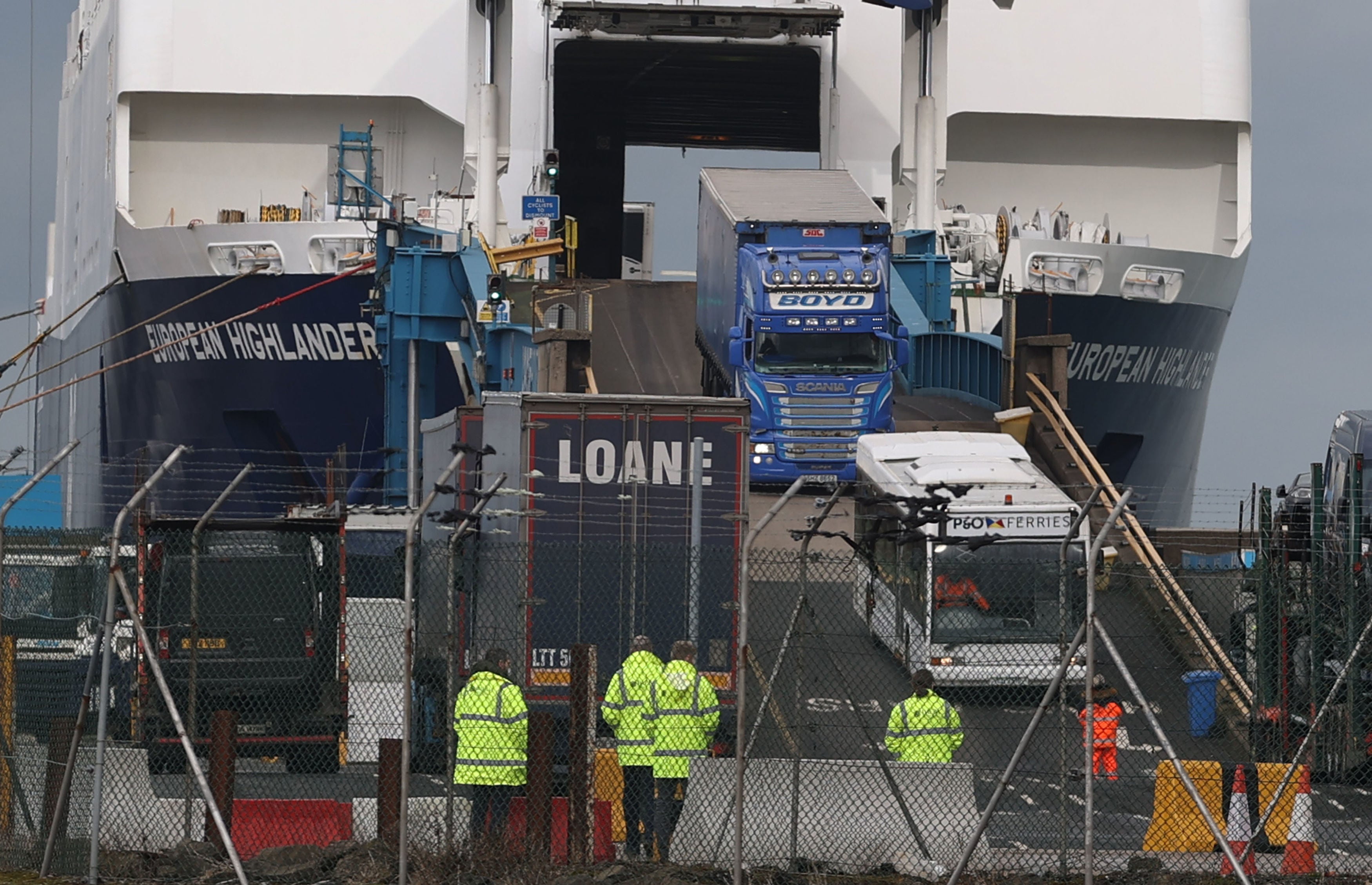Your support helps us to tell the story
From reproductive rights to climate change to Big Tech, The Independent is on the ground when the story is developing. Whether it's investigating the financials of Elon Musk's pro-Trump PAC or producing our latest documentary, 'The A Word', which shines a light on the American women fighting for reproductive rights, we know how important it is to parse out the facts from the messaging.
At such a critical moment in US history, we need reporters on the ground. Your donation allows us to keep sending journalists to speak to both sides of the story.
The Independent is trusted by Americans across the entire political spectrum. And unlike many other quality news outlets, we choose not to lock Americans out of our reporting and analysis with paywalls. We believe quality journalism should be available to everyone, paid for by those who can afford it.
Your support makes all the difference.The UK has proposed phasing in new controls on food imports to Northern Ireland from Great Britain to avoid a further flare-up in tensions over the new Brexit bureaucracy.
The plan would see checks, which were supposed to come in earlier this year before they were unilaterally delayed by the British government, phased in in four stages from October, with meat products coming under scrutiny first.
It comes as Brexit minister David Frost wrote a strongly worded newspaper article in which he told Brussels to stop “point-scoring” over the protocol.
The European Commission said on Monday that "constructive" talks on the issue had made progress and that Lord Frost's "unhelpful" article would not prevent a solution from being arrived at.
But EU sources told The Independent the phase-in plan, first reported by BBC Northern Ireland, was submitted by the UK in March and had been the basis for talks between the two sides in the following weeks.
Under the plan suggested by the UK, from 1 October health certificates would be required for fresh, meat, while from 1 February these would be extended to cover dairy products, garden centre plants, seeds and wine.
A third phase would cover cover fruit and vegetables and pet food, and phase 4 would cover other foods such as highly perishable items.
But there would be no concrete timeline for the third and four phases, which would be dependent on the success of the first two phases.
The two sides have been working on a joint version of the plan more acceptable to both sides and it is understood that there has been some movement.
The Northern Ireland protocol, which was agreed by Boris Johnson and the EU and came into effect on 1 January, is supposed to govern the province's trade relations after Brexit. It was introduced to avoid a hard border between the UK and the Republic of Ireland in order to uphold the Good Friday Agreement.
But it has caused supply problems and shortages in Northern Ireland, which have led to anger in the unionist and loyalist community, who see it as moving the territory economically closer to the Republic of Ireland at the expense of its place in the UK.
Grace periods for supermarket suppliers included in the protocal were supposed to end earlier this year, and were expected to intensify the problems. The UK says extending the grade periods was necessary for reasons of political stability, but the EU says the UK should stick to the letter of the agreement.
The UK last week replied to a letter of formal notice from the EU sent in March, which marked first step in legal action against the British government for breaking the agreement it signed just a year ago.
The Commission said it would "assess the contents of the reply before deciding on next steps".
"I would recall that the EU and UK agreed just over a year ago after extensive negotiations, I would add, with prime minister Boris Johnson and David Frost, that the protocol is the best way to protect peace and stability in Northern Ireland," a European Commission spokesperson told reporters in Brussels on Monday.
"It provides a solution in Northern Ireland to the problems created by Brexit and the type of Brexit that the current British government has chosen.
"If we are to achieve our goals then we need to implement this agreement - this is a shared responsibility and we expect the UK to uphold its political commitment."
The spokesperson added: "I would also add that every single step of the way the EU has tried to enhance dialogue and work constructively with the UK at both technical and political level to find solutions that are in line with the protocol. That's why we have been engaging intensively with our UK counterparts over the last couple of weeks.
"These exchanges have been constructive, we are making progress, and we will continue with this engagement to find solutions with the UK. The various unhelpful comments in the press will not prevent us from doing so.
"Our focus now is on making the protocol work for the people of Northern Ireland and across the island of Ireland. Only joint solutions that are agreed in the joint bodies established by the withdrawal agreement can provide the stability and the predictability that people and importantly businesses in Northern Ireland need if they are to take advantage of the opportunities of the protocol."

Join our commenting forum
Join thought-provoking conversations, follow other Independent readers and see their replies
Comments